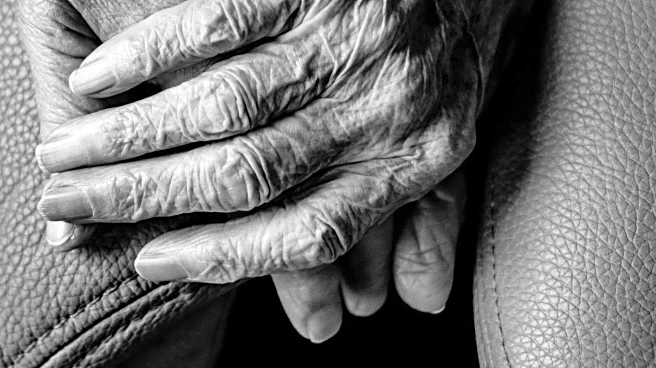What's Happening?
A recent study has analyzed the effectiveness of two neoadjuvant chemotherapy regimens, gemcitabine plus S-1 (GS) and gemcitabine plus nab-paclitaxel (GnP), for elderly patients with resectable pancreatic
ductal adenocarcinoma (PDAC). The study highlights the challenges in treating pancreatic cancer, particularly in patients aged 75 and older, who represent a significant portion of cases. While GS therapy has shown promise in younger patients, its efficacy and safety in older populations remain uncertain. The study aims to determine the optimal neoadjuvant regimen for elderly patients, considering the limited evidence available for this age group.
Why It's Important?
Pancreatic cancer is notoriously difficult to treat, with high mortality rates. As the population ages, the number of elderly patients diagnosed with this disease is expected to rise. Identifying effective treatment regimens for older patients is crucial, as they often have different tolerances and responses to chemotherapy. This study could inform clinical guidelines and improve treatment outcomes for elderly patients, potentially extending survival and enhancing quality of life.
What's Next?
Further research is needed to establish the safety and efficacy of these chemotherapy regimens in elderly patients. Clinical trials that include older participants are essential to provide robust data. Healthcare providers may need to consider individual patient factors, such as overall health and comorbidities, when selecting treatment plans. The study's findings could lead to more personalized treatment approaches and influence future clinical practice guidelines.

